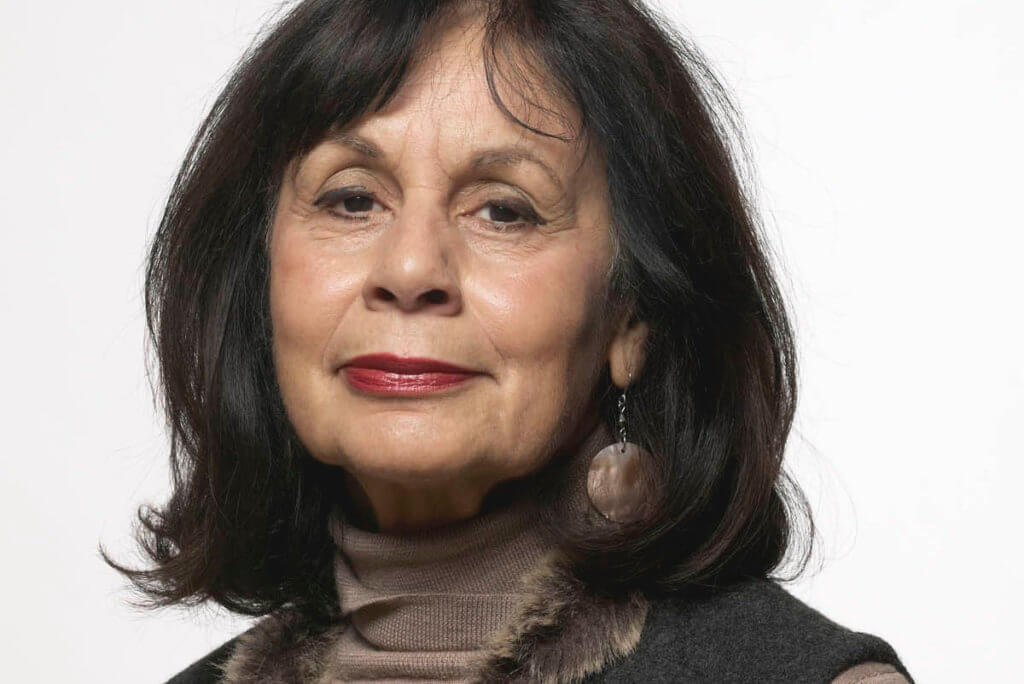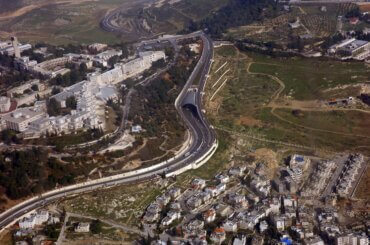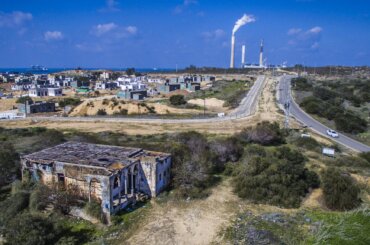“It is very important to remember that what is considered a founding event in our collective memory may be a wound in the memory of the other”
Paul Ricouer
In 2020, Palestinians commemorated Land Day from their homes, while Israeli settlers exploited the lock down due to COVID-19 in order to expand illegal settlements in Palestinian territories. The coronavirus, or what the French philosopher Jean Luc Nancy refers to as “communovirus,” has led the world to create a new kind of solidarity that stems from self-isolation. However, for Palestinians, the coronavirus has inaugurated the Nakba or ‘Great Catastrophe’ of the 21st century as it has put them in an extremely precarious position. Threatened by the virus as well as settler violence, for the first time Palestinian physical solidarity could potentially perform its own undoing. Thus in the present times, what means are available to Palestinians to keep their struggle against occupation alive? And more broadly, how can they bind themselves as a community when they have been forced into self-isolation?
The coronavirus has proven to be doubly lethal for Palestinians as it has made resistance against the ongoing Nakba extremely difficult. Joseph Massad, Professor of Modern Arab Politics at Columbia University, observes that the Nakba is “not just a past event and an ongoing process in the present, but a calamity that has a decidedly planned future ahead of it.” The perpetuity of Israel is ensured through the eternality of the Nakba which severs bonds between displaced Palestinians.
Remembering the Nakba of 1948 is therefore an act of protest and resistance. It is an assertion that Palestinians will not allow their history to be forgotten or their memories to be erased. However, memory has to be molded in a form that can be received by the public, and literary narratives of fiction and life-writing have given Palestinians the opportunity to enter the collective memory of the world. The lesson learned from Palestinian literature in the time of the coronavirus is even more crucial: through the practices of writing and reading, literature enables memories to be shared, transmitted and received. Literature extends the resistive act of remembering and creates a sense of community through the narration of memory.
In Palestinian literature, memory is employed as a method of recreating the life-world of Palestinians living in different conditions after the Nakba. Ghassan Kanafani’s Returning to Haifa (1969) is a short story which narrates the return of a couple to their house in Haifa from which they were forcefully evicted in 1948. As Said and Saffiya drive back through familiar roads, Said suffers through an avalanche of memories as “memory did not return to him little by little. Instead, it rained down inside his head the way a stone wall collapses.”
In the chaos that erupted because of the explosions in Haifa intended to make Palestinians flee, Said and Saffiya forgot their infant at their house, and the minute they remembered, it was too late to turn back. Twenty years later, they visit their old house, hoping to find a trace of their son Khaldun. Instead they meet Miriam, who had escaped Auschwitz, moved into their house and raised their son as Dov who identified himself as an Israeli. It is difficult for readers to reconcile how individuals having known the debasement of human life in the Holocaust camps could turn away from the Palestinians who now had to live in refugee camps under similarly brutal conditions and not consider their political responsibility towards the same. The Nakba for Said and Saffiya is not just the event of 1948, but a loss that has the potential to extend itself into the future because of the vast gulf that now separates two sets of displaced people, obfuscating any seeming compromise possible for the two.
Emile Habiby’s The Secret Life of Saeed: The Pessoptimist (1974) is an autobiographical novel constructed in an epistolary form set in embedded narratives. Saeed recalls having lived as an Arab-Israeli (Palestinians living inside Israel) within the borders of Israel where the only means of ensuring his safety was to pass information to the Knesset. He humorously recounts that, “During the fighting in 1948 they waylaid us and opened fire, shooting my father, may he rest in peace. I escaped because a stray donkey came into the line of fire and they shot it, so it died in place of me. My subsequent life in Israel, then, was really a gift from that unfortunate beast. What value then, honored sir, should we assign to this life of mine?”
This tragicomic character says he comes from a lineage of pessoptimism. He has been able to survive the Nakba and everything that followed only because of this attitude where one acknowledges the ill twists of fate but is grateful that things are not worse than they already are. While it seems to be an adaptation of ‘sumud’ or the steadfastness Palestinians display in the face of Israeli aggression, Saeed also shows the difficulty faced by Palestinians in preserving a sense of community when even daily sustenance for the individual in the face of Israeli oppression is a gigantic task. Palestinian memory of the Nakba serves as a counter-hegemonic narrative to Israel’s dominant nationalist narrative.
In her memoir In Search of Fatima (2002), Ghada Karmi narrates how her family went into exile in London before the Nakba of 1948. In exile, “No one spoke about the circumstances which had prompted our departure from our home, or explained the history or politics of it,” and she says that this played directly into her loss of memory about Palestine. Meanwhile, “Palestinian parents (in refugee camps) told their children every detail of the villages and towns they had come from, showed them they keys to the houses they had to abandon, recounted stories of their past lives, such that in years to come these children knew Palestine as if they themselves had lived there”.
To remember is a struggle but a necessary struggle nonetheless, and literary narratives do not let silence engulf these memories with darkness and ensure that Palestinian personal and political history is never forgotten. Thus remembering the Nakba more than seventy years later is not just a way to remember a historical event. It shows that the “Great Catastrophe” for Palestinians continues even today in the time of the coronavirus, as they protest the further demolition of Palestinian houses in the West Bank and the never-ending blockade in Gaza.
The French philosopher Paul Ricouer says that “the duty to remember is to keep alive the memory of suffering over against the general tendency of history to celebrate the victors.” [1] Remembering is an ethical act and Palestinian memory of the Nakba is even more crucial in the time of the coronavirus when usual forms of resistance have been made impossible.
Notes
- Questioning Ethics: Contemporary Debates in Continental Philosophy, edited by Mark Dooley, Richard Kearney



Isn’t anyone else joining this discussion?
Regarding Kanafani’s Return to Haifa, I felt that the plot was contrived. But maybe such things really did happen?
Poetry too plays a big role in preserving Palestinian memory, doesn’t it?
I think I first acquired a true picture of the horror of the Nakba through Kanafani’s short stories.